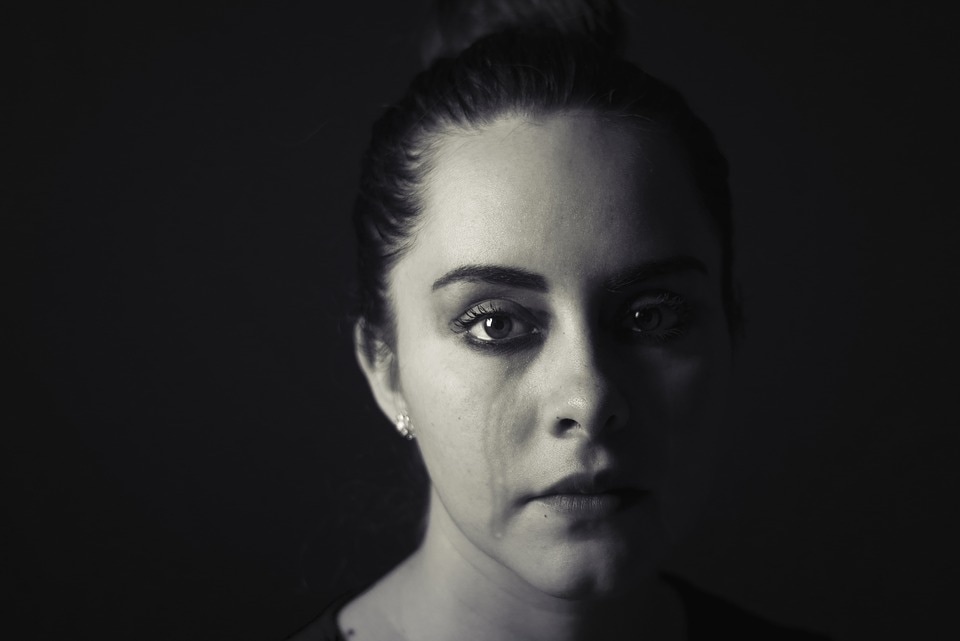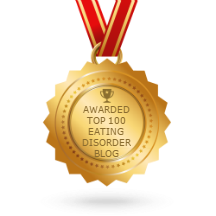- Home
- About
-
Services
- Therapy
-
Eating Disorder Trainings
>
- Clinical Approaches To Treating Body Image Issues
- Clinical Approaches To Treating Bulimia & Binge Eating Disorder
- Finding Freedom From Binge Eating
- Finding Freedom From Anorexia
- Supporting A Loved One With An Eating Disorder
- Eating Disorder Recovery Road Map
- Healing From Body Hate And Practicing Self-Compassion
- Common Questions
- Blog
- Press
- Contact
|
From the steady stream of diet advertisements on TV, to the calorie counts on menus at restaurants, our weight-obsessed world is a challenging climate for those who are in recovery from an eating disorder.
While it is impossible to eliminate diet culture from one’s life, there are steps that individuals who are struggling can take to distance themselves from negative media messages. However, certain comments from friends or family members can be highly triggering to those that are suffering. When a loved one is battling with an eating disorder, it can be hard to know what to say. As a therapist in private practice in Rockville, Maryland, specializing in helping those struggling with eating disorders, I’ve seen the negative impact that these statements can have on people in recovery. In honor of National Eating Disorders Awareness week, the following are five statements that you shouldn’t say to someone with an eating disorder. 1. You look so healthy. Saying “you look so healthy” is often a well-intentioned effort to tell the person that you are supportive of their recovery. However, often their eating disorder voice will twist any appearance-related comments into a negative sentiment about their body. It is generally a good rule of thumb to avoid making any comments about the person’s weight, body, or appearance. Someone with an eating disorder is usually entrenched in negative thoughts about their weight and body. Therefore, it can be helpful to pay them a compliment that has nothing to do with their outward appearance. A more helpful statement might be, “You look much happier,” or “You seem to be more at peace with yourself.” 2. You look way too thin. On the flip side, telling a person with an eating disorder that they look “too thin” can also be triggering. At their core, eating disorders are not really about a person’s weight. Often a person who is suffering is engaging in eating disorder behaviors, in an effort to feel more in control of their lives, cope with past trauma, or to numb difficult emotions. Further, it is a common misconception that you have to be emaciated in order to have an eating disorder. A person can be struggling with an eating disorder at any weight. Telling someone that they look too thin may be exactly what their eating disorder voice wants to hear. It’s important to understand that often there is no weight that their eating disorder voice will deem to be “too thin.” A more helpful statement could be one where you point out your concern over the person’s behaviors and how it is impacting their life, rather than focusing on their weight. An eating disorder is a mental illness, and therefore it is impossible to determine someone’s level of suffering based upon their physical appearance. 3. You don’t look like you have an eating disorder. Telling the person that they “don’t look like they have an eating disorder” only serves to fuel their disordered thinking. Their eating disorder voice will tell them that they are “not sick enough” to seek help. Denial is an integral component to eating disorders and this statement insinuates that the person does not “look sick enough” to have an eating disorder. An eating disorder is a mental illness, and therefore it is impossible to determine someone’s level of suffering based upon their physical appearance. Everyone who is struggling with an eating disorder deserves to seek treatment, regardless of his or her weight. Eating disorders come in one size: miserable. 4. I need to lose some weight. Engaging with your loved one in a discussion about your latest diet program is counterproductive and can also be highly triggering. Discussing how you are on a low-carb diet with someone who has an eating disorder is akin to talking about your drinking binge with a person who is recovering from alcoholism. Instead, try to engage in discussions with the person about things that are unrelated to food, weight, and exercise. The person likely already spends a huge amount of time thinking about these topics and could probably use a mental break. 5. Why can’t you just eat that? Asking someone to “just eat” insinuates that they are choosing to have an eating disorder. If treatment for an eating disorder was as simple as telling the person to just “suck it up and eat,” we would have no need for residential centers, therapists, or nutritionists. Telling someone with an eating disorder to “just eat,” is like saying to someone with a broken leg to “just walk.” Eating disorders are not a choice. No one would choose to watch in terror as their hair falls out, to lose their friends because they cannot go out to eat, to exercise despite physical pain, or to binge eat until they feel like they are going to explode. If you find yourself wanting to make this kind of statement, I would encourage you to educate yourself on eating disorders and the devastating impact that they can have on people’s lives. Try to express to the person that you understand they are not choosing to feel and behave this way. However, they can choose to work towards recovery, and you are here to support them every step of the way. Rather than shaming them, encourage the person to seek professional help from a therapist, psychiatrist, or dietitian — preferably one who specializes in eating disorders and health at every size. The Bottom Line If we can begin to eradicate some of the triggering and unhelpful comments that are made to those with eating disorders, we can fight back against the misconceptions and stigma that surround these life-threatening illnesses. With access to appropriate treatment and support, individuals with eating disorders can go on to lead productive and meaningful lives. Full recovery is possible! Jennifer Rollin, MSW, LCSW-C: is an eating disorder therapist in private practice in Rockville, Maryland. Jennifer specializes in helping adolescents and adults struggling with eating disorders, body image issues, anxiety, and depression. Jennifer offers eating disorder therapy to individuals in Maryland and D.C. and eating disorder recovery coaching via phone/Skype.
4 Comments
Here is what I’d like to say to the woman who hates her body. This message is for the woman who looks in the mirror and dislikes what she sees. It’s for the woman who believes that if only she lost some weight, or built some muscle, that maybe then-she would be beautiful and worthy of love. As a therapist in private practice in Rockville, MD, specializing in helping women and girls struggling with body image issues, I’ve witnessed how painful the struggle with “not feeling good enough” can be. First off, I want you to know that it’s not your fault that you are suffering from negative body image. From the time that we are children, we are surrounded by societal messages, which teach us to value “thinness” and often stigmatizes those in larger bodies. Further, there is a 60-billion-dollar diet industry, which makes profit off our belief that we aren’t “good enough.” Body-dissatisfaction is what helps diet companies continue to sell their products. Body image issues and diet-culture impact both men and women. However, I think that particularly as women, it’s important to note that a focus on these issues often keeps us from “playing big” in other areas of our lives. When women are fixed on dieting and attempting to change their bodies, they are not using their energy to change the world. It’s also interesting to note that diet-culture and a fixation on thinness rose in prominence around the time that women began to gain more political rights in our society. We have been culturally conditioned to try to take up less space. As women, we have been taught to criticize our bodies. Not only is this seen as socially acceptable, it’s also a more comfortable way for people to deal with other upsetting situations in their lives. For instance, it’s far easier to talk about hating your thighs, then to express how you are feeling lonely and unloved. However, just as this sense of body-hatred has been learned-it can also be unlearned. There is hope! If your negative thoughts about your body are getting in the way of your happiness, it’s so important to reach out for help from a professional who specializes in body-positivity and health at every size. Reaching out for help when you are struggling is a sign of true strength, not weakness. Your Weight is Not Your Worth Even if you loved your body, the reality is that our bodies are meant to change as we age. Tying your sense of self-worth to your external appearance, is a recipe for discontent. Additionally, it’s important to note that your body is simply the vehicle, which enables you to live your amazing life. Work to practice gratitude for all that your body helps you to do, rather than focusing on how it looks. Further, we all have a limited amount of mental energy. When you fixate on how your body looks, it takes away valuable time, in which you could be reflecting on other things. No one writes in someone’s obituary, “she was so thin,” or “she was the perfect weight.” What would you like to be remembered for? Work to shift focus to the things and people in your life that truly matter. Despite what the 60-billion-dollar diet industry may tell you, I know this to be true. You are not more valuable if you take up less space. Further, your worth is not found in your body size or shape. Your true value is found in the sparkle in your eyes when you laugh, the way that you pursue your passions, how you help others, and in your relationships. You are enough, and you are worthy of love and belonging, just as you are. Jennifer Rollin, MSW, LCSW-C: is an eating disorder therapist in private practice in Rockville, Maryland. Jennifer specializes in helping adolescents and adults struggling with eating disorders, body image issues, anxiety, and depression. Jennifer offers eating disorder therapy to individuals in Maryland and D.C. and eating disorder recovery coaching via phone/Skype. This article was originally featured on The Huffington Post. Everyday, many women and men have the morning ritual of standing on a bathroom scale. If weight was truly just a neutral number for most people, perhaps you could make the case that this is not problematic. However, in our culture the idea of weight gain is often seen as “the worst thing in the world.” We have attached a moral value to the issue of weight loss and weight gain, which shouldn’t exist in the first place. You are not a “good” person because you lost weight and you are not a “bad” person because you gained weight, despite the messages that diet-culture may be sending you. The following are three reasons why I think that owning a scale and weighing yourself, does far more harm than good and is generally unnecessary. 1. It’s not that accurate of a measure. Weight-fluctuations can cause people who chronically weigh themselves to go into panic-mode. In her book entitled, Body Respect, Dr. Linda Bacon does a great job of explaining one reason why weight-fluctuations occur. Dr. Bacon states, “Your body’s biggest component is water-about 60 percent of your weight. Physically you’re like a big water balloon: five quarts of blood and forty quarts of other fluids...In a given day, your weight can fluctuate by several pounds, primarily due to changes in body water. Considering this, you can see that your scale has limitations. The scale is not an effective way to measure substantive weight change. If you doubt this, try eating some salty foods-tortilla chips and dip will do. You’ll get thirsty, retain water, and “show” more pounds on the scale. So, from the perspective of substantive weight, those day-to-day changes on a scale-or the quick, dramatic, short-term weight loss that comes from dieting-are relatively meaningless...In other words, sometimes weight loss is just dehydration.” Further, it’s important to note that a person’s weight is not a good barometer of a person’s overall health. You can be "thin" and unhealthy. You can be in a larger body and be healthy. The idea that we must be a certain BMI to be healthy is a myth that is propagated by the $60 billion-dollar diet industry. There are many people who stand to make profit off of your discontent with your body. 2. You actually do not have much control over your weight (long-term). We are constantly bombarded with the message that we have ultimate control over our weight and that our lives will improve because of weight loss. This is utterly false. There are two major fallacies at play here. The first is the pervasive societal belief, which falsely claims that we have a large amount of control over our weight. Research shows that while our attempts to control our weight through dieting may work in the short-term, ultimately they will fail in the long-term. Additionally, set-point theory holds that your body will work to maintain its set-point weight range through powerful biological and psychological mechanisms. Therefore, almost all people who are chronically dieting will “fall off the wagon” and proceed to regain the weight that they lost. Dr. Traci Mann, a psychologist and researcher who has studied dieting for over a decade, exemplified this point when she stated, “Your genes play an important role in determining how much you weigh throughout your life. In fact, your genetic code contains the blueprint for your body type and, more or less, the weight range that you can healthily maintain. Your body tends to stay in that range—which I will refer to as your set weight range—most of your adult life. If your weight strays outside it, multiple systems of your body make changes that push you back toward it.” The second fallacy is the unspoken notion that we can control our world, our relationships, and our self-esteem, through our weight. The reality is that there are people who have healthy loving relationships, feel beautiful, and achieve success-at every shape and size. Despite what diet-culture may want us to believe, losing weight is not the key to increased health and happiness. Instead, work to nourish your body with food and movement that you actually enjoy. 3. Your weight says nothing about your value as a person. I often share with clients that even if you loved your body, the reality of life is that our bodies are meant to change as we age. When you allow your sense of self-worth to rest on something external (and that research shows is largely out of your control in the long-term), it is a recipe for discontent. There are so many things about you that are far more interesting than the gravitational force of the earth on your body. At the end of your life, what kind of legacy do you wish to leave? Would you rather be remembered for your body-or for the kind of person that you were? Ultimately, you are worthy of love and belonging, no matter what size you are. When you allow a scale to dictate your self-worth, you allow it to take away your inherent power. You are so much more than a number. Additionally, getting rid of your scale enables you to focus more on how your body is actually feeling. No matter what you weigh or what your body looks like, you are enough, just as you are. The Bottom Line I encourage you to throw away your bathroom scale. I’d also urge you to stop weighing yourself and to replace this ritual with something more nourishing, such as doing a meditation, lighting a candle, or making a gratitude list. Giving up the scale and weighing yourself, will help you to begin to free up your mental energy. Thus, enabling you to focus on the things in your life that truly matter. Jennifer Rollin, MSW, LCSW-C: is an eating disorder therapist in private practice in Rockville, Maryland. Jennifer specializes in helping adolescents and adults struggling with eating disorders, body image issues, anxiety, and survivors of trauma. Jennifer offers eating disorder therapy to individuals in Maryland and D.C. and eating disorder recovery coaching via phone/Skype. |
About MeI'm an eating disorder therapist in private practice in Rockville, MD. Archives
June 2024
|




 RSS Feed
RSS Feed
